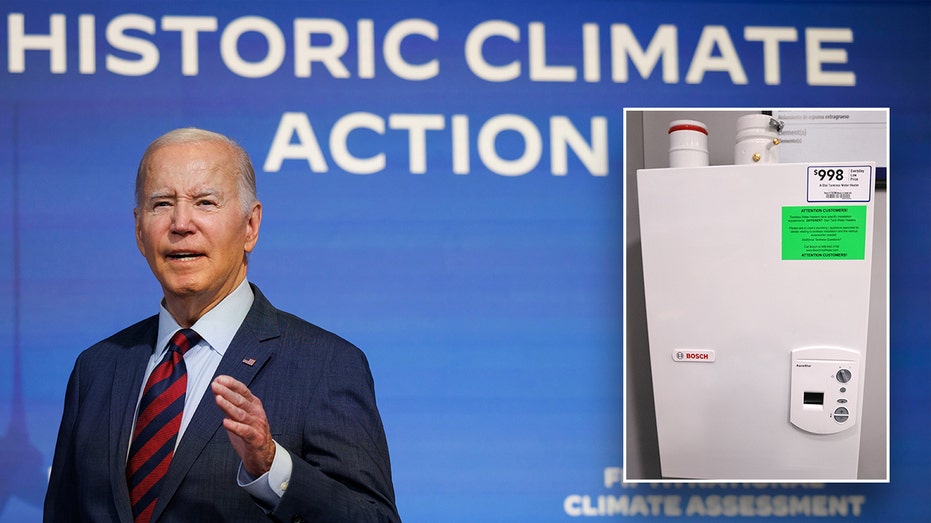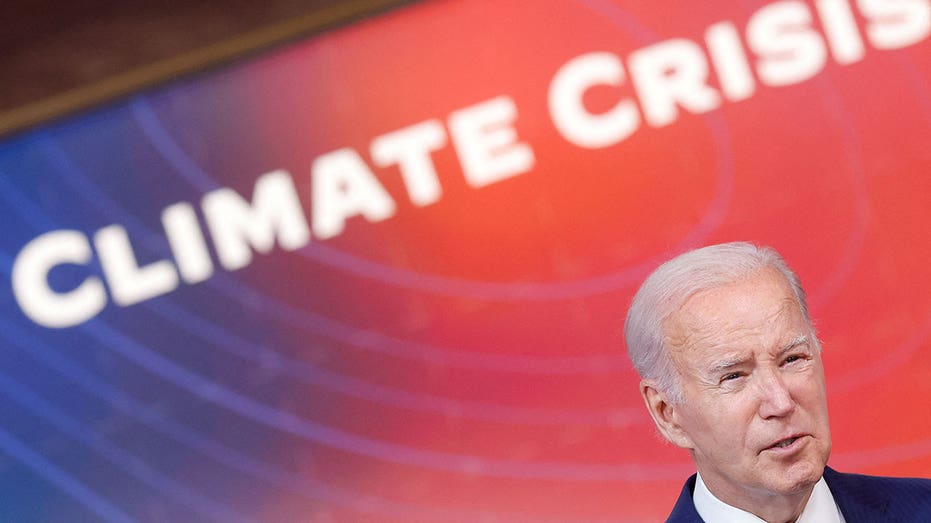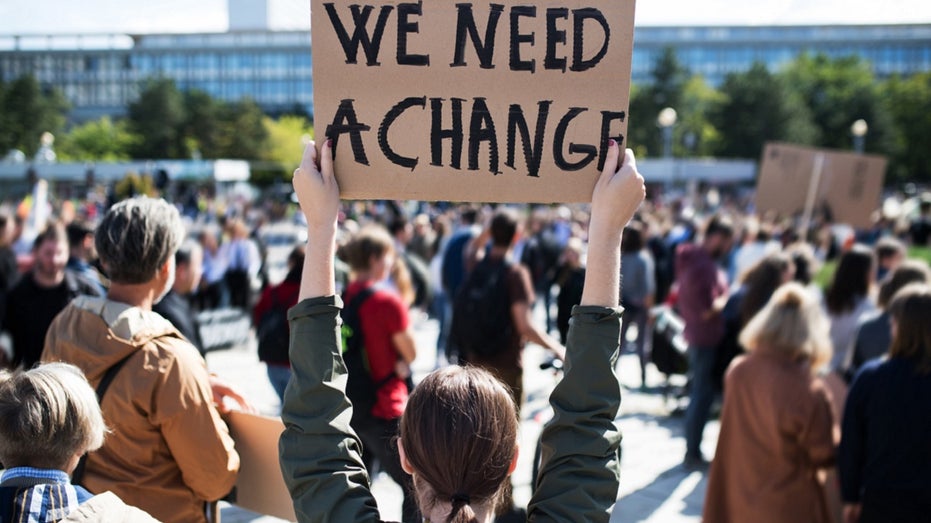Climate Depot Executive Editor Mark Morano responds to comments from Senate hearings on climate concerns and chimes in on the Biden administration's latest climate push on 'The Bottom Line.'
D The Biden administration It is banning some natural gas water heaters from the market as part of its climate change agenda, a move critics say will increase energy costs for low-income and older households.
The move, on the administration's final day, would take non-condensing, natural gas-fired water heaters off the shelves by 2029 to reduce carbon dioxide emissions, which climate change Lawyers and President Biden say global warming is the cause.
The new rules will require new tankless gas water heaters to use about 13% less energy than today's least efficient tankless models.

The Biden administration is banning some natural gas water heaters from the market as part of its climate change agenda, a move critics say will raise energy costs for low-income and senior households. (Ting Shen/Bloomberg, via Getty Images, left, Getty Images via Hearst Newspapers, right. / Getty Images)
The rules apply to both non-condensing and condensing gas water heaters, but the rules raise efficiency requirements to a point that only condensing models can meet, effectively banning cheaper but less efficient non-condensing models, according to the Washington Free Beacon. Condensing technology dissipates less heat.
Consumers will be forced to buy more expensive models or cheaper non-instantaneous storage tank water heaters, which are less efficient than the models banned by the DOE.
Tankless technology is often used when space is at a premium, such as in apartment buildings and small homes, Diana Furchtgott-Ruth, director of the Center for Energy, Climate and Environment, wrote in the Daily Signal.
For example, Renai America is the only company that manufactures tankless water heaters in the United States. Its tankless, non-condensing natural gas water heaters sell for about $1,000 Home DepotCompared to $1,800 for a concentrated 75-gallon tank.
The new rules were released by the Department of Energy (DOE) the day after Christmas, although the agency did not publicly announce them. Fox Business has reached out to the DOE for comment.

President Biden comments on July 27, 2023 extreme heat. (Reuters/Jonathan Ernst/File Photo/Reuters Photo)
Oil giant Shale wins appeal in carbon-emissions case against climate activists
Matthew Egen, chief energy consultant at the American Gas Association, blasted the move, calling it “deeply troubling and irresponsible.”
“The final rule is in violation of the Energy Policy and Conservation Act (EPCA), which prohibits DOE from introducing a standard that renders a product with a distinct performance characteristic unavailable,” Agen said in a statement before the rules were officially released.
To make matters worse, Agen said, DOE's own analysis claimed that the average life-cycle cost savings would be just $112 over a 20-year average product life. He said, this rule is unreasonable for legal and practical reasons.
“Forcing low-income and senior customers to pay much more upfront is particularly troubling. DOE's decision to move forward with a flawed final rule is deeply disappointing.”
rinnai Recently built A $70 million, 360,000-square-foot factory in Georgia to manufacture non-condensing gas water heaters for the American market, according to The Washington Free Beacon.
Renee America president Frank Windsor told the outlet that the move was a “bad deal.”
He said the company began construction in 2020 following President Trump's efforts to boost American manufacturing and employs hundreds.
“When this rule goes into effect, all of that manufacturing will be essentially irrelevant,” Windsor told the outlet. “A lot of the major equipment that we've invested in will basically have to be scrapped.”

People with placards and posters during the global strike for climate change. (iStock/iStock)
Get Fox Business on the go by clicking here
However, the move has been welcomed by the nonprofit Appliance Standards Awareness Project (ASAP), saying it will eliminate 32 million metric tons of carbon dioxide emissions from water heaters sold over 30 years.
The party that supports it power loss and water use in appliances, says it supports DOE's efficiency standards
“This is a commonsense step that will lower total household costs while reducing global-warming emissions,” said Andrew De Laskey, ASAP's executive director.
“These long-awaited standards will ensure more family savings with proven energy-efficient technologies already used in most tankless units.”